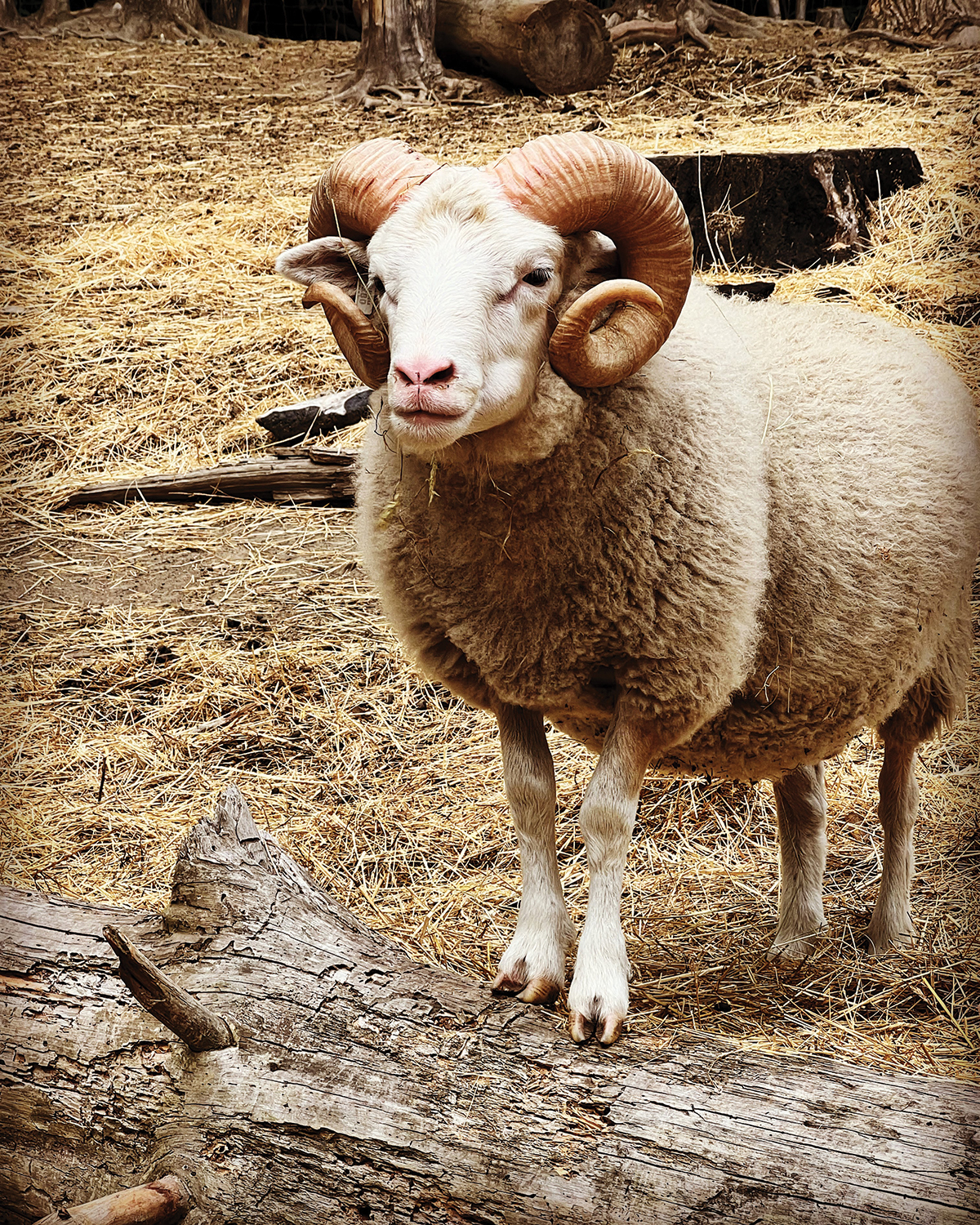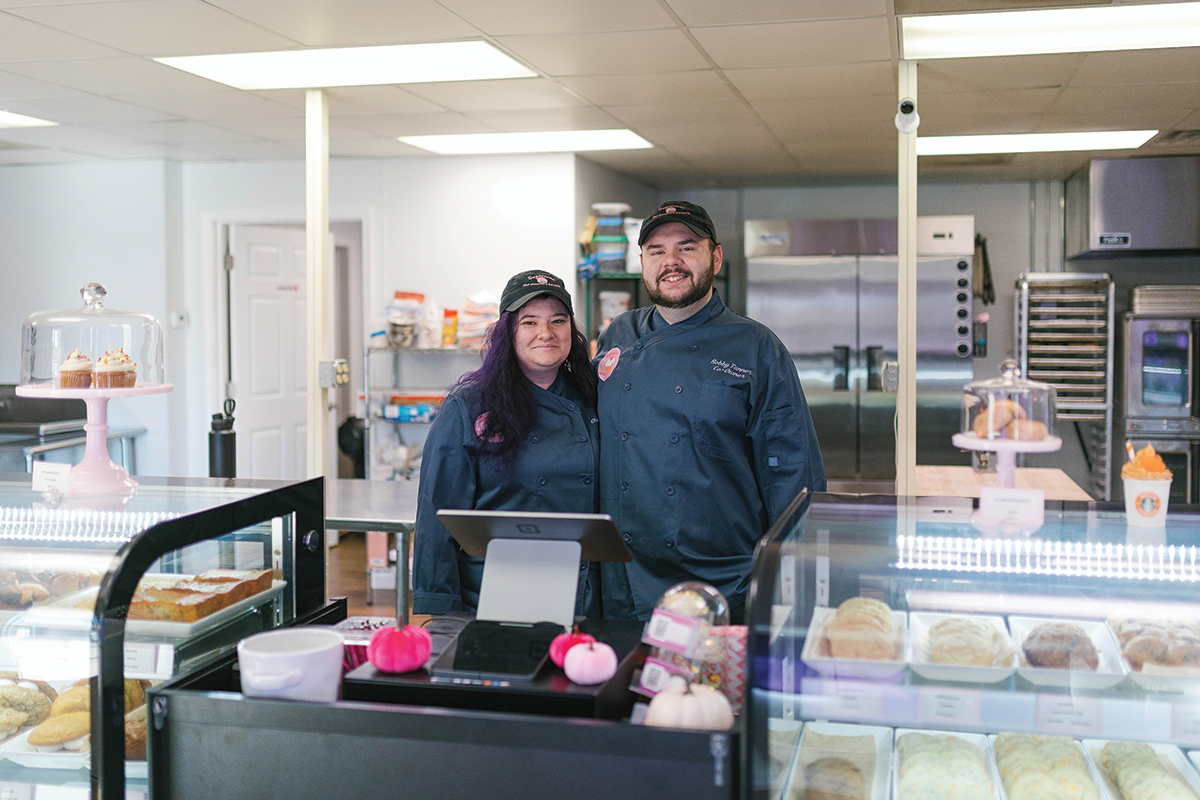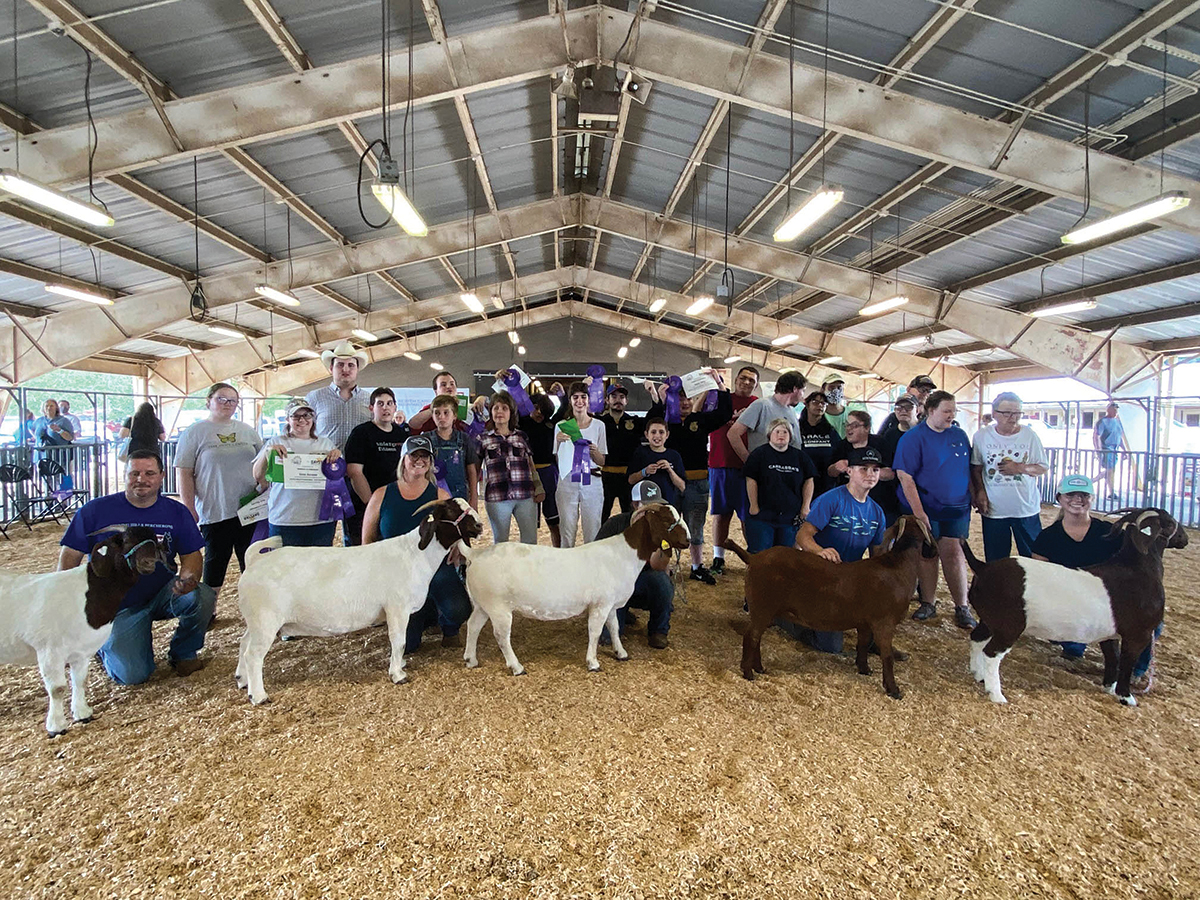Rare sheep and silky rabbits enrich Fletcher farm

SHEAR PERSONALITY
Monticello, a Shetland sheep, observes his surroundings at Sourwood Farm.
After polishing off their morning coffee, Trey Warner and his husband Scott Lawrence start making rounds on their six-acre SourWood Fiber Farm.
The two tend to a brood of clucking hens before pushing down to the barn, where seven Satin Angora rabbits rest in hutches, sniffing the air and watching the morning unfold with a critical eye. Meanwhile, the barn’s more boisterous inhabitants — 35 Shetland and Leicester Longwool sheep — bleat expectantly, eager for hay, water, and ear scratches.
“Everybody’s got their own personality,” Warner says. “Some are skittish — they really don’t like people. Others just want their faces rubbed.”
Regardless of temperament, “these animals are our children,” says Lawrence. “When they’re born, it’s hard not to get too attached.”
Later this month, the flock will be rounded up and shorn, their wool processed into roving and yarn at a mill in Tennessee and later sold at markets across the region. Fiber artists knit the SourWood wool into sweaters, mittens, scarves, and other wares, and the process will start all over again next spring.
Late October is also when Warner and Lawrence will attend the local Southeastern Animal Fiber Fair, joining other keepers of sheep and rabbits, as well as those who raise llamas, goats, and alpacas.
After finding their local property in 2015, the former Floridians first acquired a handful of award-winning Shetland sheep. A few years later, Warner and Lawrence added Satin Angora rabbits, a breed whose “billowy and shiny” hair requires constant grooming, to the menagerie.
This past year, the couple welcomed a group of Leicester Longwool sheep. The breed was highly prized in America during the 1800s because of the sheen and brilliance of its wool. However, when Merino wool gained favor in the early 1900s, Leicester Longwools fell into decline.
Today, fewer than 5,000 of these sheep live on the planet. Thus, they are considered a threatened breed by The Livestock Conservancy. But efforts are being made to rev up their numbers. Warner and Lawrence, for instance, are members of the Conservancy’s “Shave ’Em to Save ’Em Initiative,” a program that connects shepherds of heritage breeds with fiber artists; the idea is to increase demand for the breed by making the wool more profitable.
But raising any animal — regardless of lineage — is always hard, and occasionally heartbreaking. Helping a pregnant momma deliver an unusually large male lamb, or finding out the hard way that chicken feed can be poisonous to sheep — “Farming,” says Lawrence, “is not for the faint of heart.”
But, he adds, “there are so many kind, nice people in this area who are willing to teach us.”
The SourWood flock has already brought home a smattering of ribbons. “Since I grew up in a city, I wasn’t involved in 4-H or anything like that,” says Warner. “So I always like to joke that I’m living my 4-H life in my forties.”
Find SourWood Farm exhibiting at the Southeastern Animal Fiber Fair (WNC Agricultural Center, 1301 Fanning Bridge Road, Fletcher) on Friday, Oct. 21 through Sunday, Oct. 23. Admission is $5/day or $10 for a three-day pass. For more information, visit saffsite.org. To learn more about SourWood Fiber Farm, visit sourwoodfiberfarm.com.




Wow this is a great article about Sourwood Farm. I’ve spent alot of time at Sourwood with these two gentlemen and the work they are doing is incredible!!!
This was a very good article regarding Sourwood Farm! Explaining the process of what goes into maintaining the different animals and different breeds of sheep was very interesting. It takes a special kind of person to do what the both of you do, and it shows!!